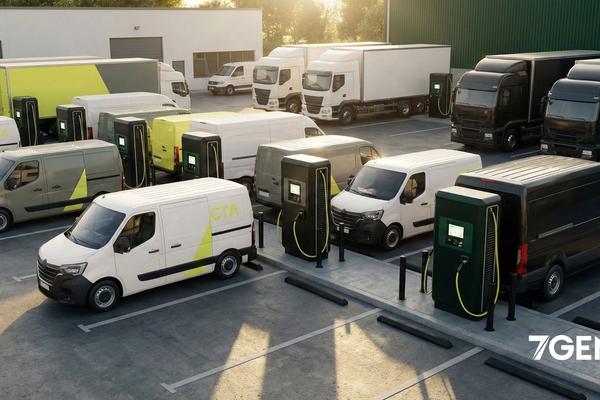EVs and the Last-Mile Challenge: Solving Urban Logistics Issues
Last mile delivery is the most complex and costly part of the logistics chain. It accounts for up to 53% of total shipping costs and often involves navigating congested streets, narrow delivery windows, and growing pressure for faster, greener servic

Cover image
EVs and the Last-Mile Challenge: Solving Urban Logistics Issues
Last-mile delivery is the most complex and costly part of the logistics chain. It accounts for up to 53% of total shipping costs and often involves navigating congested streets, narrow delivery windows, and growing pressure for faster, greener service. In dense urban environments, these challenges are even more pronounced.
Electric vehicles (EVs) present a scalable, sustainable solution to the last-mile challenge. By addressing operational pain points, EVs can help businesses reimagine their urban delivery strategies—while meeting customer expectations and regulatory demands.
The Urban Delivery Dilemma
City deliveries face unique obstacles: traffic congestion, parking restrictions, noise regulations, and increasingly, emissions mandates. Add to that the rise of e-commerce and same-day delivery expectations, and it’s clear why logistics providers are under pressure to adapt quickly.
Traditional delivery vehicles are often ill-suited for modern cities. High emissions, loud engines, and large footprints make them inefficient and costly in dense areas.
Why EVs Are Built for the Last Mile
Electric cargo vans and light-duty trucks are tailor-made for the delivery routes, stop-and-go nature of last-mile logistics. Here’s why they’re gaining ground in urban delivery fleets:
- Zero tailpipe emissions make them compliant with low-emission and zero-emission zones.
- Quieter operation allows for early morning, late-night or weekend deliveries without disturbing neighborhoods.
- Lower maintenance and fuel savings improve profitability for high-frequency routes.
- Compact vehicle options make it easier to navigate tight city streets and limited parking. Electric vehicles also benefit from regenerative braking in stop-and-go traffic, improving energy efficiency and range in urban conditions.
Operational Gains with Managed EV Solutions
Electrifying a fleet doesn’t just solve compliance issues—according to the U.S. Department of Energy, it creates tangible operational advantages.
- Lower total cost of ownership (TCO) over time
- Telematics and fleet tracking to optimize route efficiency
- Access to grants and EV tax credits that ease the transition Fully managed EV solutions simplify deployment and reduce the burden on internal teams. there are many companies that can help with parts of these transition but only someone like 7Gen can do it all for you.
The Road Ahead
Urban logistics will only become more demanding as cities grow and customer expectations rise. Electric vehicles offer a practical, proven way to reduce emissions, improve delivery efficiency, and future-proof operations.
By investing in electric last-mile solutions now, logistics providers can stay ahead of regulations, reduce costs, and deliver a cleaner, quieter experience to the communities they serve.
Ready to make the transition to EVs and tackle the last-mile challenge with electric solutions?
Read more about how you can do it here.
Your go-to resource for a seamless transition to a zero-emission fleet.
Ready to Electrify Your Fleet?
Get expert guidance on transitioning to electric vehicles. Our team is ready to help.
Get a Quote


